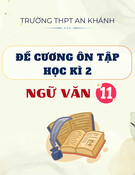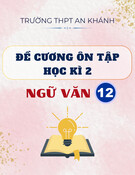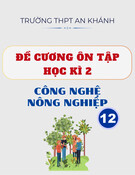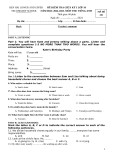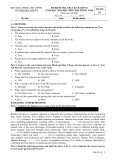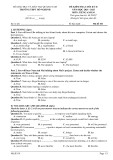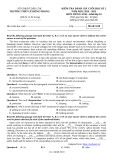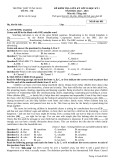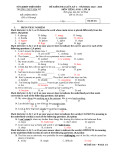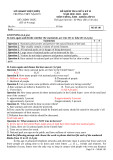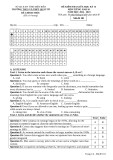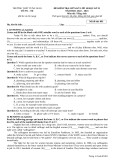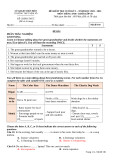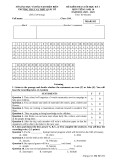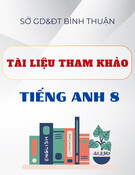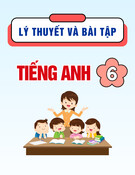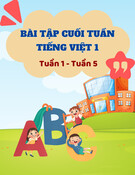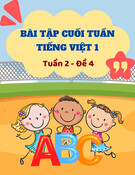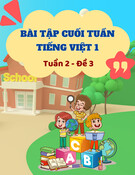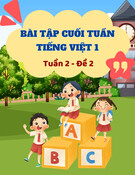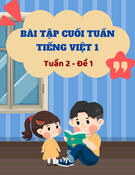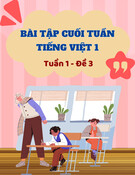
1
`TRƯỜNG THPT YÊN HÒA
BỘ MÔN: TIẾNG ANH
ĐỀ CƯƠNG ÔN TẬP HỌC KỲ II
NĂM HỌC 2023 - 2024
MÔN: TIẾNG ANH - KHỐI 10
TABLE OF CONTENTS
CONTENTS
PAGE
A. POINTS IN FOCUS
1
I. VOCABULARY
1
II. GRAMMAR & STRUCTURES
2
III. STRUCTURE OF THE TEST
3
B. PRACTICE FOR THE 2nd MID-TERM TEST
4
- MULTIPLE CHOICE QUESTIONS
4
- WRITTEN QUESTIONS
8
- FURTHER PRACTICE TEST 1
11
- FURTHER PRACTICE TEST 2 (OFFICIAL 2nd MID-TERM TEST - 2022-2023)
13
C. PRACTICE FOR THE 2nd FINAL TERM TEST
17
- MULTIPLE CHOICE QUESTIONS
18
- WRITTEN QUESTIONS
21
- FURTHER PRACTICE TEST 1
24
- FURTHER PRACTICE TEST 2
26
- FURTHER PRACTICE TEST 3 (OFFICIAL 2nd FINAL TERM TEST - 2022-2023)
28
A. POINTS IN FOCUS
I. VOCABULARY
UNIT
MAIN CONTENTS
Unit 5:
Charity
Voluntary work and charity activities
collect/remove the rubbish, help the elderly, do volunteer work in the hospital, help the
animals, teach children, donate blood, donate money, help the needy, raise money, help sick
people, plant trees, lead nature tours, raise money, (do a) fundraiser, pick up rubbish/ trash/
litter, tutor children, rescue animals, help on a farm, rubbish removal, empty the rubbish bin, do
charity work
Charity things
first-aid kits, medical supplies, blankets, plaster, toiletry
Phrasal verbs related to volunteer and charity works
benefit from, clean up, help out, care for, throw away, join in, give back to
Charity places
senior centre, orphanage, community centre
Others
needy, donate, homeless shelters, make a difference, improve quality of lives, motorway,
empathize, gain experience, dump rubbish (illegally), ecotours, sponsor, broaden networks of
friends
Unit 6:
Time to
learn
Places in school
Classroom, corridor, gym, science lab, playground, reception, library, school hall, school
office, staff room, sports field, canteen/ cafeteria
Education






